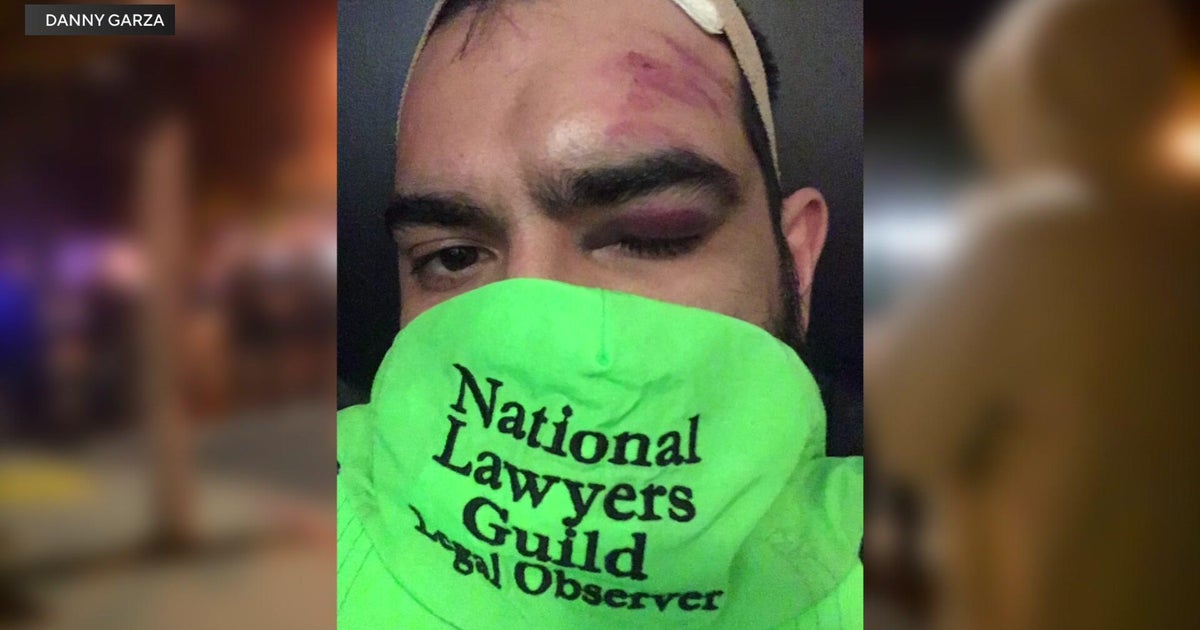Amy Schumer on "I Feel Pretty" backlash and her changing comedy
Amy Schumer's new movie "I Feel Pretty" is deliberately titled to send a message. In the movie, which hits theaters Friday, the Emmy-winning comedian plays Renee, a young woman struggling with self-doubt and insecurity. But after she suffers a head injury, Renee finds herself with a new sense of confidence.
Schumer is acclaimed for her raw sense of humor on stage, her Emmy-winning sketch comedy show, "Inside Amy Schumer," and roles in movies like "Trainwreck" and "Snatched." She sat down with "CBS This Morning" co-host Gayle King to discuss her new movie, finding her own confidence, and her comedy roots.
"I said, 'Do not retouch me in this movie. Do not retouch anything,'" Schumer told King at the Fishbowl Bar in New York City's Dream Hotel. "You see my cellulite. You see my, my rolls, whatever….It's like, I feel great. And I just want, I want other women, other people to -- to feel good about themselves. And I think walking out of this movie you really do."
King agrees. But the movie's trailer faced considerable backlash online with many raising questions about what kind of message the plot sends. One person inquired on Twitter: "did amy schumer really think a movie about a woman needing a blow to the head to feel confident in her body would uplift people????"
Schumer's answer? When they see it, they'll get it.
"And they say, 'Oh, well, that's saying a woman needs a brain injury to feel confident.' And you know what? That's a huge exaggeration and a metaphor. But basically….We all struggle with self-esteem. And when they see the movie I know they'll understand," she said.
Being uncomfortable in her own skin is not something Schumer shares with the protagonist of "I Feel Pretty."
"For the last couple of years, have just really felt good about myself, and haven't tried to adjust, you know?" she said. But that self-confidence didn't come easy.
"It's a series of many events. But also, getting so much hate online. You know, being a woman who uses her voice, and expresses views that people disagree with, immediately they go to your appearance. I think a lot of women, they don't use their full potential, their full voices because they're afraid of being insulted," she said. "It's a constant battle and journey and process. I felt really good about myself as a little girl. I didn't even think about it."
Schumer also wasn't afraid to speak her mind.
"So my friends' parents, they'd be, like 'Mrs. – call me Mrs. Cohen' and I'd be, like, 'Sharon, I'd love an orange juice,'" she recalled. "And they're, like, 'that's disrespectful.' I'm, like, 'Why?' or I would say, 'Mr. Livingston, I think you've had too much to drink. I don't think you should drive."
While Schumer says she always knew she'd end up performing in some way, she didn't necessarily think she'd be a comedian.
"I did a play when I was five. I was Gretel in 'Sound of Music'….And any time I would talk, they would laugh. And to me, I'm just saying my line. And I felt kind of humiliated. And the director explained to me, 'No, they're laughing because you're funny and they love you.' I always wanted to make people laugh, and I didn't know what I was going to wind up doing but I knew I would be performing in some way," she said.
"I think comedians – I think they're born funny. But it's – it's a defense mechanism. I think the things that start out the most painful or humiliating, are what you turn into comedy and material," she said.
That said, there are new lines Schumer won't cross in her comedy.
"There are things that I would have joked about even a year ago that I wouldn't now, just with the times changing….You know, with the #MeToo movement happening. I don't want to risk setting anything back. I don't wanna risk hurting their feelings. But even, like, you know, when I started, I was playing a character. When I started doing standup, it was, like, this real bubbly, irreverent girl who didn't really know anything was wrong with what she was saying," Schumer explained. "It wasn't me. It was like me making fun of someone who's, you know, privileged and racist."
Now, she feels as close to herself on stage as ever.
"Once I realized I was running the risk of people laughing for the wrong reasons, then I completely changed my tune….My performance would be a little affected, and sort of talking different, and then delivering my punch lines like a bubbly fool….I don't feel like I need to, you know, dress like a real housewife at a reunion anymore. No offense, ladies."




